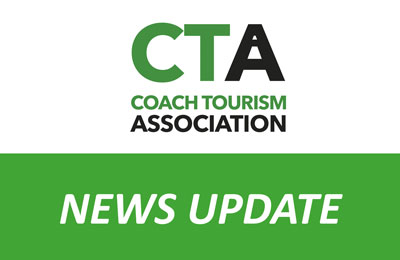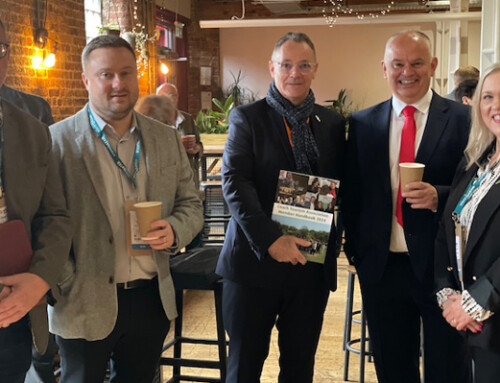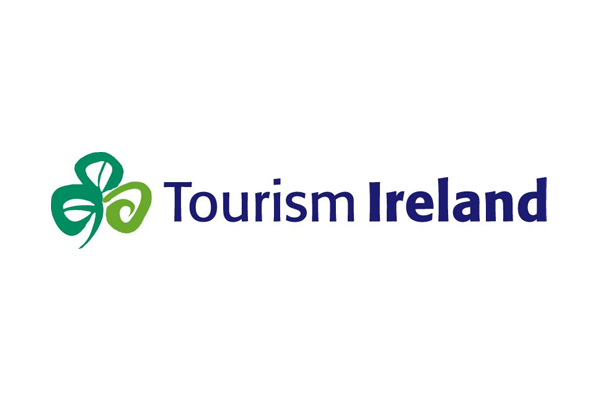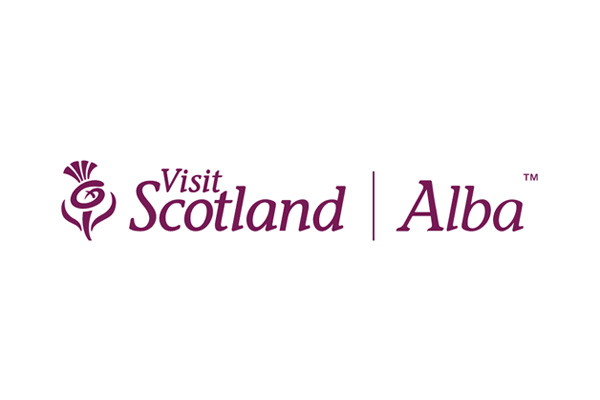COVID-19 Updates – week commencing 12/07/21
More updates of developments from the government and various links to interpretation and guidance.
Go to date:
15 July 2021 …
Tourism Alliance update:
- The Move to Step 4
Following the announcement confirming the move to Step 4 of the Roadmap on 19th July, the Government has published top-line guidance which will be followed-up with more detailed guidance shortly. The main points in the top line guidance are:
-
- All remaining limits on social contact (currently 6 people or 2 households indoors, or 30 people outdoors) will be removed and there will be no more restrictions on how many people can meet in any setting, indoors or outdoors.
- All settings will be able to open, including nightclubs. Large events, such as music concerts and sporting events can resume without any limits on attendance or social distancing requirements.
- All restrictions on life events such as weddings, funerals, bar/bat mitzvahs and baptisms will be removed, including the remaining restrictions on the number of attendees. There will be no requirement for table service at life events, or restrictions on singing or dancing.
- COVID-status certification will not be required in law as a condition of entry for visitors to any setting. Organisations are already able to ask visitors for proof of COVID-status, as long as they meet existing legal obligations including under equality law. The Government is providing a way for individuals to easily demonstrate their COVID-status. This can be achieved by completion of a full vaccine course, a recent negative test, or proof of natural immunity – through the NHS COVID Pass on the NHS app.
- The legal requirements to wear a face covering will be lifted in all settings. To help reduce the spread of COVID-19, published guidance will advise that wearing a face covering will reduce your risk and the risk to others, where you come into contact with people you don’t normally meet in enclosed and crowded spaces.
- Social distancing rules (2 metres or 1 metre with additional mitigations) will be lifted. You should continue to consider the risks of close contact with others, particularly if you are clinically extremely vulnerable or not yet fully vaccinated. Social distancing will only be required in limited circumstances: ports of entry for passengers between disembarkation and border control in order to manage the risk of Variants of Concern being transmitted between individuals; and people who are self-isolating should also continue to socially distance from others, particularly where they have had a positive test. Health and care settings will continue to maintain appropriate infection prevention and control processes as necessary and this will be continually reviewed. Guidance will be updated based on the latest clinical evidence this summer.
- For individual settings where the risks of rapid spread are particularly acute, Directors of Public Health, in consultation with setting operators and relevant departments, will be able to advise that social distancing is put in place if necessary to control outbreaks. This should be targeted, time limited, and apply to settings characterised by enclosed and vulnerable communities such as prisons, immigration removal centres and homeless shelters.
- It is no longer necessary for Government to instruct people to work from home. Employers can start to plan a return to workplaces.
- Regulations that place COVID-secure requirements on businesses, including table service, and distancing between tables, will be lifted. ‘Working Safely’ guidance will be updated to provide examples of sensible precautions that employers can take to reduce risk in their workplaces. Employers should take account of this guidance in preparing the risk assessments they are already required to make under pre-pandemic health and safety rules.
- Businesses must not require a self-isolating worker to come to work, and should make sure that workers and customers who feel unwell do not attend the setting.
- Businesses will be encouraged to ask staff and customers to clean their hands regularly and clean surfaces that people touch regularly. The Government will provide guidance on how businesses can reduce unnecessary contact in the workplace, where it is practical. Operators will still be encouraged to use outside space where practical, and to consider the supply of fresh air to indoor spaces. Carbon dioxide (CO2) monitors could be used to help identify where a space is poorly ventilated with businesses encouraged to take steps to improve ventilation if CO2 readings are consistently high.
- Businesses will be encouraged to display QR codes for customers to check in using the NHS COVID-19 app, to support NHS Test and Trace, although it will no longer be a legal requirement.
- The Government will change the controls that apply in early years, schools, colleges and higher education institutions to maintain a baseline of protective measures while maximising attendance and minimising disruption to children and young people’s education. The Government’s intention is that from step 4 children will no longer need to be in consistent groups (‘bubbles’), and early years settings, schools or colleges will not be required to routinely carry out contact tracing, which will help to minimise the number of children isolating. Contact tracing in specific educational settings would only be triggered if deemed necessary in response to a local outbreak.
- The Government also intends to exempt under 18s who are close contacts of a positive case from the requirement to self-isolate, in line with the approach for those who are fully vaccinated (as set out below). Further detail will be published in due course and the changes are likely to come into effect later in the summer. There will be no restrictions on in-person teaching and learning in universities.
At the same time as removing the restrictions noted above, the Government is keeping in place key protections
-
- testing when you have symptoms and targeted asymptomatic testing in education, high risk workplaces and to help people manage their personal risk.
- isolating when positive or when contacted by NHS Test and Trace or when advised to by the NHS COVID-19 app.
- border quarantine: for all arriving from red list countries, and for those people arriving from amber list countries, other than those UK residents fully vaccinated in the UK vaccine programme.
- cautious guidance for individuals, businesses and the vulnerable whilst prevalence is high including:
- whilst Government is no longer instructing people to work from home if they can, Government expects and recommends a gradual return over the summer;
- Government expects and recommends that people wear face coverings in crowded areas such as public transport
- being outside or letting fresh air in; and
- minimising the number, proximity and duration of social contacts.
- encouraging and supporting businesses and large events to use the NHS COVID Pass in high risk settings to help to limit the risk of infection. The Government will work with organisations that operate large, crowded settings where people are likely to be in close proximity to others outside their household to encourage the use of the NHS COVID Pass. If sufficient measures are not taken to limit infection, the Government will consider mandating the NHS COVID Pass in certain venues at a later date
- Guidance For Visa Applicants and Temporary Residents
The Home Office guidance for visa applicants and temporary residents has been updated to say that If people who obtained a Returning Resident visa because their Indefinite Leave to Remain lapsed on or after 24 January 2020 , but were unable to return to the UK due to travel restrictions in place relating to coronavirus, may be eligible for a refund of their visa fee by emailing CovidRRR@fco.gov.uk.
- Updated Guidance for Businesses
The Government has updated the Primary Guidance for businesses in various tourism-related sectors. They have also added a preamble that applies to all the sectors which states:
From Step 4, legal restrictions can be lifted, all businesses can open and the government is no longer instructing people to work from home. To support businesses through this next phase, the ‘Working Safely’ guidance will continue to provide advice on sensible precautions employers can take to manage risk and support their staff and customers.
Businesses still have a legal duty to manage risks to those affected by their business. The way to do this is to carry out a health and safety risk assessment, including the risk of COVID-19, and to take reasonable steps to mitigate the risks you identify.
You should use the guidance to consider the risk within your premises and decide which mitigations are appropriate to adopt. In the long term, we expect that businesses will need to take fewer precautions to manage the risk of COVID-19. We will continue to keep our guidance under review and will remove advice once it’s safe to do so.
Here are the links to the guidance documents (please note that the previous ‘Visitor Economy’, ‘Organised Events’ and ‘Heritage Sites’ guidance has been consolidated into the new ‘Events and Attractions’ guidance).
-
- Hotel and Other Guest Accommodation
https://www.gov.uk/guidance/working-safely-during-covid-19/hotels-and-guest-accommodation
-
- Events And Attractions
https://www.gov.uk/guidance/working-safely-during-covid-19/events-and-attractions
-
- Restaurants, Pubs, Bars and Nightclubs
-
- Shops, Branches and Close Contact Services
https://www.gov.uk/guidance/working-safely-during-covid-19/shops-branches-and-close-contact-services
- Wales To Move To Alert Level One on 17th July
The Welsh First Minister today confirmed that Wales will move to Alert Level One from 17th July. This means that:
-
- Up to six people can meet indoors in private homes and holiday accommodation.
- Organised indoor events can take place for up to 1,000 seated and up to 200 standing.
- Ice rinks can reopen.
- Limits on the numbers of people who can meet in public places or at events will be removed
- Outdoor premises and events will also have greater flexibility around physical distancing.
Other changes coming into effect on the 17th July are:
-
- A specific requirement for employees to provide comprehensive information on the risks and mitigations identified in the COVID risk assessment with their employees.
- New rules for children’s residential activity centres so children in groups of up to 30 can visit.
The Welsh Government also published an updated Coronavirus Control Plan for Alert Level Zero which, subject to confirmation, should come into effect on 7th August 2021. The key features of Alert Level Zero are below (I’ve highlighted the main differences between Alert Level Zero and Step Four in England):
-
- There will be no legal limits on the number of people who can meet others, including in private homes, public places or at events.
- All businesses and premises will be able to reopen.
- Carrying out a coronavirus risk assessment will continue to be a legal requirement for businesses, employers and event organisers.
- Businesses, employers and other organisations will still be required to take reasonable measures to manage the risk of coronavirus at their premises.
- The reasonable measures to be taken, such as physical distancing and other controls, will be for each organisation to consider depending on the nature of the premises and the risks of exposure to coronavirus identified.
- People should continue to work from home wherever possible. If you are unwell you should self-isolate and get tested.
- Face coverings will remain a legal requirement indoors in public places, such as on public transport, in shops and when accessing healthcare. The use of face coverings in the workplace should also be considered by businesses and employers as part of their coronavirus risk assessment.
The UK Government has updated the travel lists that will apply from 4am on 19th July. The key changes are:
- Moving the Balearic Islands and British Virgin Islands from the Green Watchlist to Amber.
- Adding Bulgaria and Hong Kong to the Green List
- Moving Croatia and Taiwan to the Green Watchlist
- Adding Cuba, Indonesia, Myanmar and Sierra Leone to the Red List
https://dft-newsroom.prgloo.com/news/travel-update-new-destinations-added-to-government-travel-lists
- ONS Report on Public Sentiment
ONS has published a report on public sentiment ahead of England moving to Step 4 on Monday. Some of the key findings in the report are:
-
- 56% are worried about the end of restrictions on Monday while only 20% are not worried
- 64% of adults said they still plan to cover their faces in shops
- 64% plan to wear masks on public transport
- 60% plan to avoid crowded places
- 54% said they are looking forward to going on holiday abroad when coronavirus rules end
- 28% believe normal life is a year or more away
All this suggests that, while people are keen to take a holiday, it will still take considerable encouragement to get people to return to their normal lifestyle.
- Environment Agency Update
The Environment Agency has published an update ahead of Monday saying that they are reviewing their operations and will put any new arrangements in place as quickly as they can, but it will take time for them to fully review the guidance and make the appropriate adjustments. In the meantime they will carry on using the existing safe systems of work that we have implemented over the past 16 months
- Guidance on Fifth SEISS Grant Updated
The guidance for self-employed people on how to calculate their turnover has been updated to explain that you’ll need to tell HMRC about your turnover if you traded in 2019 to 2020 as well as any of the other tax years listed. The section ‘How to work out your April 2020 to April 2021 turnover’ has been updated with examples of start dates you can use.
https://www.gov.uk/guidance/work-out-your-turnover-so-you-can-claim-the-fifth-seiss-grant
- Guidance for Places Of Worship
New guidance has been published for the use of places of worship for the move the Step 4 on Monday. The key points are:
-
- there are no longer limits on the number of people you can meet. This means there are no restrictions on group sizes for attending communal worship.
- Legal requirements for social distancing will no longer apply and you will not need to stay 2 metres apart from people you do not live with.
- There are no legal restrictions on the number of people that can attend a place of worship, including at significant life events, such as bar/bat mitzvahs, private baptisms, and naming ceremonies.
- Face coverings are no longer required by law in any setting. However, the Government expects and recommends that people wear face coverings in crowded areas such as public transport.
- COVID-secure rules, including table service requirements and restrictions on singing and dancing, will no longer apply. However, there are steps everyone should continue to consider to reduce the risk of transmission, which are explained in this guidance. Places of worship should follow the principles set out in the working safely guidance.
- There will no longer be limits on the number of people who can sing indoors or outdoors. This includes indoor congregational and communal singing.
https://www.gov.uk/guidance/covid-19-guidance-for-the-safe-use-of-places-of-worship
- Build Back Better High Streets
MHCLG has published their Build Back Better plan for High Streets. Some of the main points in this are:
-
- Learning from the ‘Open Doors programme’ pilots to tackle the problem of vacant units, MHCLG will explore what additional support or measures might be needed to encourage the alternative “meanwhile” use of properties, to make sure they don’t sit empty and to help high streets recover across the UK. #
- They hope to support, among other priorities, the removal of derelict buildings to make way for new developments; remediation of abandoned or brownfield sites for both commercial and new residential use; and the delivery of new public spaces. Bids relating to the culture and heritage them may include new, upgraded or protected community hubs.
- They will encouraging councils to use Compulsory Purchase Orders (CPOs) for long-term empty properties
- Subject to Parliamentary approval, and they commit in principle to making Temporary Pavement Licenses permanent and will consider whether and how to build on their success
- They have brought forward a 12-month extension to the new temporary permissions for off-sales of alcohol
- They will consider the future of the temporary permitted development rights over the summer, allowing sufficient time for any consultation and legislation if required.
- They will put legislation in place to ringfence the rent debt that has been accrued from March 2020 for tenants who have been impacted by Covid-19 business closures and will introduce a system of binding arbitration for where agreement cannot be reached.
- They will review the landlord and Tenant Act The review which will focus on developing proposals for a legislative and regulatory framework that helps support the efficient, flexible use of space and supports high streets and town centres
- They will look at how BIDs could be used to further improve the local trading environment.
- They will we will work with the Retail Sector Council, wider retailers, industry experts and relevant government departments to explore strategic areas for joint working, including on levelling up, employment, skills and meeting the challenges of net zero.
https://www.gov.uk/government/publications/build-back-better-high-streets
Linked to this, the Government has announced 15 Town Deals totalling £335m. The Town Deals will fund community regeneration projects including repurposing empty shops on high streets, creating new public spaces, transforming a riverfront area into a community hub with entertainment and leisure venues, and creating a new digital enterprise and learning centre.
https://www.gov.uk/government/news/government-strategy-to-regenerate-high-streets
- R Number and Growth Rate
Finally, we have the R Number and Growth Rate figures for the week, which are, respectively, 1.2 to 1.4 and +4% to +7%. – which is pretty much the same as last week so the rate of increase is not accelerating.
https://www.gov.uk/guidance/the-r-value-and-growth-rate
A couple of documents that you should be aware of – BEIS’s Hospitality Recovery Plan and a report that DCMS has commissioned on the factors influencing domestic tourism
- Hospitality Strategy: Reopening, Recovery, Resilience.
The key action points in the strategy are:
Reopening
-
- Support delivery of the final steps in the PM’s roadmap by developing practical COVID-secure guidance for hospitality businesses to help them ease back to normal operations.
- Provide continued sectoral support, via a dedicated Minister and support team, and help remove any remaining barriers to full operation.
- Help the sector overcome current recruitment challenges by actively signposting jobseekers to hospitality vacancies.
Recovery
-
- Work with the sector to boost demand by promoting hospitality and enabling businesses to trade more flexibly, for example by extending current easements, as set out in the High Streets Strategy.
- Work with the sector to help manage costs, including bringing forward legislation to ringfence rent debt accrued from March 2020 for tenants who have been impacted by Covid-19 business closures.
- Work with the sector on access finance, including working with the government-owned British Business Bank and its delivery partners.
Resilience
Business Resilience
-
-
- Improve the long-term relationship between hospitality tenants and landlords.
- Work with Local Authorities and the hospitality sector to develop a model for hospitality led regeneration hubs, with demonstrators delivered in England, Northern Ireland, Scotland and Wales.
- Work with the sector to learn the lessons of the pandemic for businesses and enable investment in future resilience measures.
-
Jobs and Skills
-
-
- Explore options for vocational training offers that support career paths in the sector.
- Work with the sector to raise the profile of skills and careers in hospitality.
- Encourage hospitality businesses to participate in Government programmes, including the Help to Grow scheme, to improve digital and management skills in the workforce.
-
International Trade and Tourism
-
-
- Showcase the best of UK hospitality in future international communications campaigns.
- Promote UK hospitality businesses overseas through inclusion in international ministerial visits and trade shows.
- Work with businesses to establish themselves abroad, by working with the sector to identify barriers and address export challenges, building on opportunities following the UK’s exit from the EU.
-
Hospitality and the Environment
-
-
- Meet, create, and share best practice on environmental guidance to help businesses decarbonise supply chains and achieve Net Zero, seizing the opportunity of CoP26.
- Reduce waste and single-use plastic consumption.
- Help ensure any recyclable waste produced is collected for recycling.
-
Innovation and Investment
-
-
- Bring sector leaders and businesses together with the UK’s world leading innovation system, including universities and InnovateUK, to support the creation of the next generation of hospitality start-ups, and encourage them to take advantage of emerging technology and digital trends.
- Encourage technology adoption by leveraging the Help to Grow scheme and working with Be the Business and businesses to produce sector-led guidance.
- Work with the sector to develop dynamic new operating models, including by identifying and overcoming barriers to innovation.
-
Community and Wellbeing
-
-
- Work with the sector to champion the role of hospitality in community wellbeing as we emerge from the pandemic.
-
To take forward this strategy, BEIS is establishing a Hospitality Sector Council to develop and implement an action plan that will deliver these objectives and review progress in doing so.
- Factors Influencing Domestic Tourism
DCMS has published a report by RAND on the factors influencing domestic tourism in the UK and abroad and the role of publicly funded domestic tourism marketing. Reading through the document there is little in the way of startling new information on the factors that influence domestic tourism – apparently domestic tourism is influenced by:
-
- economic factors
- specific destination-related attributes and activities that take place there
- demographic characteristics of the visitors
- visitors attitudes to the environment
- weather
- transport infrastructure.
However, what is of some concern, especially in the context of the DMO review and the Tourism Recovery Plan, are the following conclusions:
-
- We found very limited evidence concerning the role and impact of publicly funded domestic tourism campaigns on decision making.
- The evidence on the influence of publicly funded destination marketing on domestic tourism is very limited. This evidence gap is further accentuated when narrowing the scope of study to the UK context.
- A significant problem facing research in this area is the challenge of measuring the impact of destination marketing activities. Traditional approaches for measurement, including visitor metrics and conversion studies, do not fully account for the impact of exogenous variables – like weather, family characteristics, etc. – on travel decisions.
- They also fail to account for the increasing role of the Internet and online social media on travel choices.
- There is very little existing evidence concerning the impact of destination marketing (domestic or otherwise) on moving trips to outside the peak season, moving holiday trips to different regions or encouraging people to extend the duration of trips.
This suggests that the researchers concentrated on reviewing international literature rather than asking VisitEngland or the DMOs for their research. This is somewhat at odds with the purpose for which DCMS commissioned the research, which was “to provide a comprehensive, systematic and critical assessment of the scope and quality of available evidence on factors influencing domestic tourism”
https://www.gov.uk/government/publications/domestic-tourism-rapid-evidence-assessment










